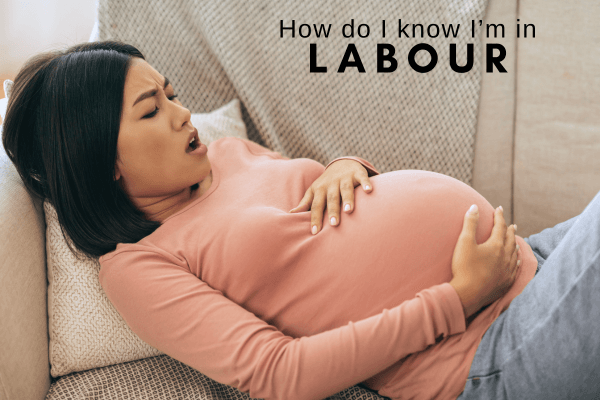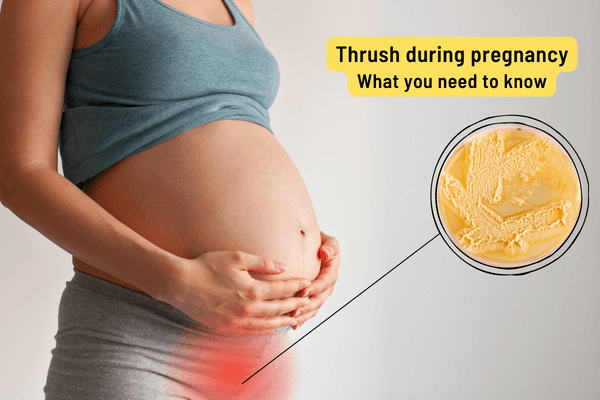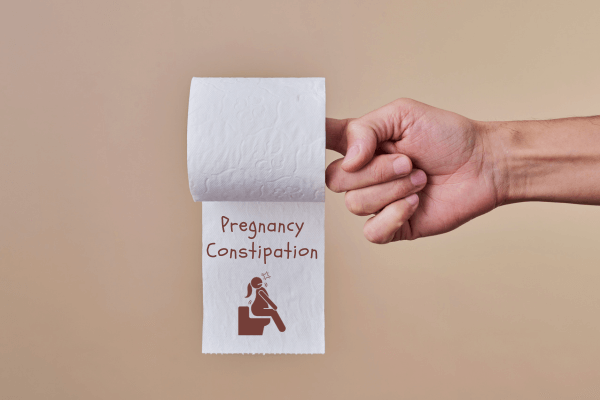The first trimester is calculated from the 1st day of the last menstrual period through the end of the 13th week of pregnancy. If you were calculating your expected date of delivery you would be using this same 1st day of your last menstrual period as the starting point of your calculation.
The first trimester is a crucial time in the pregnancy as major organs and systems are forming during this period. While it can be an exciting time, it can also be a challenging period for many women due to the hormonal and physical changes that often accompany.
In this article, we will discuss what to expect during the first trimester of pregnancy, signs of a healthy pregnancy, common discomforts and challenges, and tips for managing. We will also cover fetal development and what to avoid during this period to ensure a healthy pregnancy
First Trimester early signs of pregnancy
- Positive pregnancy test: A positive pregnancy test is usually the first indication that you are pregnant.
- Absence of bleeding: Some light spotting can be normal during early pregnancy, but heavy bleeding or cramping may indicate a problem.
- Gradual weight gain: While weight gain may vary from person to person, a healthy pregnancy typically involves a gradual weight gain over the course of the pregnancy.
- Fetal heart rate: Your healthcare provider will monitor the fetal heart rate via ultrasound to ensure that it falls within the normal range.
- Maternal blood test: Testing the mother’s blood helps determine the risk of the fetus having certain birth defects.
What are the first trimester changes and developments?
- Nausea and vomiting: Many women experience morning sickness during the first trimester, which can include nausea and vomiting. While it’s not clear why morning sickness occurs, it’s believed to be related to changes in hormone levels.
- Fatigue: You may feel more tired than usual during the first trimester. This is due to changes in hormone levels and the increased energy demands of pregnancy.
- Breast changes: Your breasts may become tender, swollen, or sore during the first trimester. This is due to hormonal changes and increased blood flow to the breasts.
- Spotting: Some women experience light spotting during the first trimester, which can be normal. However, if you experience heavy bleeding, you should contact your healthcare provider right away.
- Increased urination: You may find yourself needing to use the bathroom more often during the first trimester. This is due to the increased blood flow to your kidneys and changes in hormone levels.
- Talk to someone: Whether it’s a partner, friend, or therapist, talking about how you are feeling can help you feel better.
- Take care of yourself: Eating well, getting enough sleep, and practicing relaxation techniques can all help you feel better emotionally.
- Seek help if you need it: If you’re feeling overwhelmed or depressed, don’t hesitate to seek help from your healthcare provider.
First Trimester by the week
Week 1
Your pregnancy period is calculated starting from the first day of your last menstrual period even though you are technically not pregnant at this point of time. This is because it is easier to know the first day of your period but it’s quite difficult to tell the time when the egg is fertilized by a sperm and conception takes place.
So week 1 of your pregnancy is the week of your last menstrual period. Your uterine lining and the unfertilized egg from the last cycle is being discarded through the period. In a way your body is spring cleaning to pave the way for a new cycle.
Week 2
This is the week of ovulation. A new egg will be released from the ovary into the fallopian tube where it will either wait for a sperm to mate with or meet with a waiting sperm. Sperm can hang out and stay fertile 3-5 days while an egg can survive upto 24 hours. When the twain shall meet – fertilization shall occur and you will be technically pregnant!
Conception is fertilisation of Ovum (Female Egg) with Sperm to form a Zygote which is about the size of a poppy seed. This occurs by the end of the 2nd week.
Week 3
So this week you are officially pregnant though you might not know it for some time. Pregnancy symptoms will take another couple of weeks to show up, the earliest women have reported the early pregnancy symptoms is week 4! The fertilized egg gets busy almost immediately. There is so much to do and such little time! It splits multiple times, migrates to the uterus to set up home and “make the baby” from just a few cells. Within the week there is a flourishing cluster of about 100 cells collectively called a blastocyst which burrows itself into the uterine lining (endometrium). This is called implantation. This could happen towards the end of week 3 or in week 4.
Week 4-13
For Baby:
After about 10-12 days of fertilisation, the cell cluster develops into an embryo. Your baby has travelled a long way, from being the size of a poppy seed, to one that measures 6 cm and weighs about 18 gms. It keeps busy, never rests, keeps growing, building organs, and furiously turning into a sweet little baby.
- By the end of this period the placenta is formed and ready to take over nourishment for the baby.
- The baby can move its arms and legs and curl its toes and fingers.
- Nails have started to appear at the ends of those wee little toes and fingers.
- The rapidly growing intestines have taken their position in the abdominal cavity.
- blood cells are being produced in the bone marrow.
For Mother:
As for you, you would be feeling the heat of all this furious paddling that’s happening under the surface.
- It’s normal to feel fatigued.
- The infamous morning sickness might strike in this period and bring with it vomiting and smell sensitivity.
- Expect some bloating, indigestion, heartburn and/or constipation.
- Swollen and tender breasts are also a very common side effect of pregnancy though not as talked about as morning sickness.
- Also you might find yourself running to the loo for a pee more often. All par for the course in this period.
- There are also of course a ton of hormonal changes happening inside your body that will wreak havoc on your emotions – having you top of the world one minute and bawling into your soup the next.
- The weight gain in this period might not be so noticeable, that comes later.
Can you feel a baby at 3 months?
During the first trimester, the fetus undergoes significant development, but it may be too early to feel movement. While some women may feel fluttering or “quickening” as early as 16-20 weeks, others may not feel movement until later in the pregnancy. It’s important to note that fetal movement can vary widely between women and pregnancies, and is not necessarily a reliable indicator of fetal health.
If you have concerns about fetal movement, our certified pregnancy coaches and doulas can help you with your queries and concerns.
What should you do during the first trimester?
- The 1st thing that you should be doing is scheduling your first prenatal appointment with your Gynaecologist.
- Eating a healthy and balanced diet is crucial for both you and your growing baby. Aim to eat a variety of fruits, vegetables, lean proteins, and whole grains. It’s also important to stay hydrated by drinking plenty of water.
- In addition to a healthy diet, your healthcare provider may also recommend additional supplements such as prenatal vitamins to ensure that you and your baby are getting all the necessary nutrients and folic acid to help prevent birth defects.
- Take care of yourself and your health – stay active. Gentle exercises such as walking, swimming, and prenatal yoga can be beneficial for both you and your baby. It’s important to stay active during pregnancy, but be sure to check with your healthcare provider before starting any new exercise routine.
- Prioritise rest and relaxation during the first trimester. Getting enough sleep and reducing stress can help improve your overall well-being and support a healthy pregnancy.
- If you haven’t already then this is a good time to start kegel exercises to maintain your pelvic health
- This is a good time to register for prenatal and childbirth classes for you and your partner. It will set you up with the information you need to prepare and enjoy what’s coming next.
- If you visit the doctor or dentist, mention that you are pregnant and ensure any medication you take is safe in this period. So too for any beauty salon or spa visits.
What should you avoid during the first trimester?
- Alcohol: Consuming alcohol during pregnancy can lead to a variety of fetal alcohol spectrum disorders (FASDs), which can cause lifelong physical and mental impairments.
- Tobacco: Smoking during pregnancy can increase the risk of premature birth, low birth weight, and sudden infant death syndrome (SIDS).
- Illicit drugs: Using drugs during pregnancy can have serious consequences for both the mother and fetus, including developmental delays, low birth weight, and even stillbirth.
- Medications: Some medications may be harmful during pregnancy. Be sure to discuss any medications you are taking with your healthcare provider.
- Foods to avoid: Certain foods may carry the risk of foodborne illness, which can be harmful during pregnancy. Be sure to avoid raw or undercooked meats, seafood, and eggs, as well as unpasteurized dairy products and juices.
- Activities: Certain activities need to be stopped or done with caution during pregnancy:
- Activities that carry a high risk of falling, such as skiing or horseback riding, should be avoided during pregnancy.
- Exposure to certain chemicals or radiation may be harmful to the developing fetus. So if your work entails working near or with chemicals or radiation check with your doctor, take extra precaution or check with your employer if you could have a temporary change in role.
- Avoid hot baths.
- If you have a cat, stop changing the kitty litter.
Overall, the first trimester of pregnancy is a time of significant changes and adjustments. It is natural to have a lot of questions as you first start with your pregnancy. Anxiety and fear are common emotions to experience in this period. If you are frustrated about not getting adequate information or are anxious, reach out for help and support. Timely help and support can improve your overall experience and wellbeing and have a healthy pregnancy.
Our highly rated prenatal class “The Healthy Pregnancy Guide” is an excellent source of reliable information that is available to you on your device, at your fingertips as and when you need it for reference. It is full of videos including prenatal exercise and breathing videos, step by step guides, templates and shopping lists. When you register on Veira we also pair you with a certified maternity coach/doula who is available to you on Q&A chat as well as video consultation and can provide you with pregnancy support throughout your pregnancy and beyond. Your Veira Coach is an experienced professional who can answer all your questions and guide you gently and patiently every step of the way so that you feel supported and informed.
Watch: All About the First Trimester of Pregnancy-














































